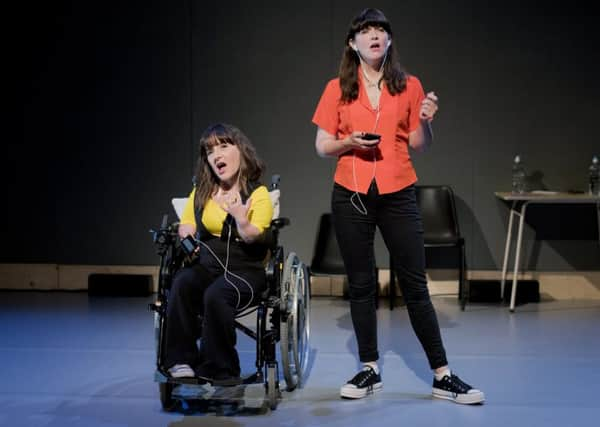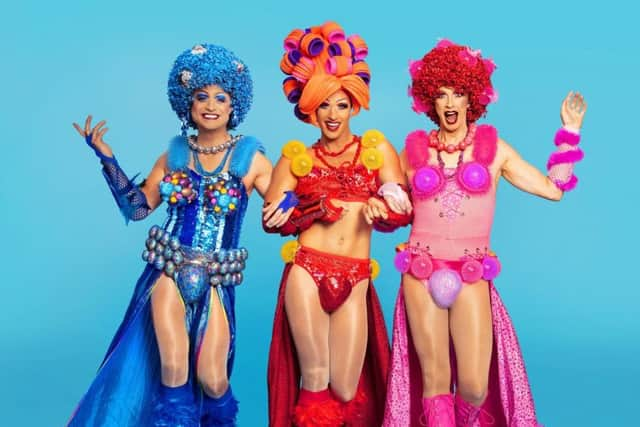Theatre reviews: Priscilla Queen of the Desert, Playhouse, Edinburgh | Still No Idea, Traverse Theatre, Edinburgh


Priscilla Queen of the Desert, Playhouse, Edinburgh **** | Still No Idea, Traverse Theatre, Edinburgh ****
Based on the famous 1994 film – with book by Stephan Elliott and Allan Scott – the 2006 stage musical version of Priscilla is a celebratory coming-out show par excellence, revelling in the freedom to put queer culture centre stage, and celebrate all the super-camp joys of drag. This latest UK touring version, starring Joe McFadden, Miles Western and Nick Hayes captures all of that explosive exuberance, although Charles Cusick-Smith’s costumes are sometimes so far over the top as to seem more pantomime dame than glamorous drag queen.
Advertisement
Hide AdMcFadden acts beautifully as Tick (aka Mitzi del Bra), although he seems a shade less comfortable with the dancing; and there’s powerful support not only from his two fellow queens, but from Daniel Fletcher as Bernadette’s new admirer Bob, and the three fabulous singing divas – Aiesha Pease, Claudia Kariuki and Rosie Glossop – who act as guardian angels.


There is an issue about the portrayal of non-trans women in this show; Tick’s estranged wife barely features, and as for Bob’s soon-discarded mail-order bride from Thailand – well, the words offensive stereotype barely cover it. Yet it’s hard to resist a show that expresses so much joy, and such an exhilarating sense of a journey towards freedom; and Priscilla’s splendid magpie playlist of great songs from the 80s and earlier – ranging from Go West to I Will Survive – makes the show an irresistible good night out, with impressive support from musical director Sean Green, and a seven-strong live band whose brilliant music-making raises the Playhouse roof.
If gay and trans people have often been victims of oppressive regimes and attitudes, then people with disabilities often fall victim to the same kind of politics; and despite their light-touch, comedy-duo style, there’s a memorable element of serious political warning in Lisa Hammond and Rachael Spence’s powerful show Still No Idea, co-scripted with director Lee Simpson.
First created nine years ago as No Idea, the show recounts what happened when Hammond – a four-foot actress in a wheelchair – and Spence, a performer of strikingly “normal” appearance, went out into the streets of London to ask people what their show should be about.
The findings were slightly chilling, with interviewees initially determined that Lisa – with her “cheeky face” – should be the main character, but, absolutely unable to write her into a narrative, once they were asked to imagine how the story should develop.
And in this new version of the show, Hammond and Spence explore not only how this experience was replicated, for Hammond, when she became a cast member of a “long-running fictional drama series” – only to find that her character was never given the major storylines she was promised – but also how the situation has deteriorated over the last decade. The final image is of an age of deep cuts in disability benefits, growing public abuse of the disabled, and a smug assumption in some circles – not least in theatre – that the problem of inclusion for disables people has now been sorted.
Advertisement
Hide AdIt all seems a little more bearable, though, viewed through the prism of Hammond and Spence’s powerful friendship: things are tough, says this quiet but hard-hitting show, but never completely without hope, or without humour.
JOYCE MCMILLAN